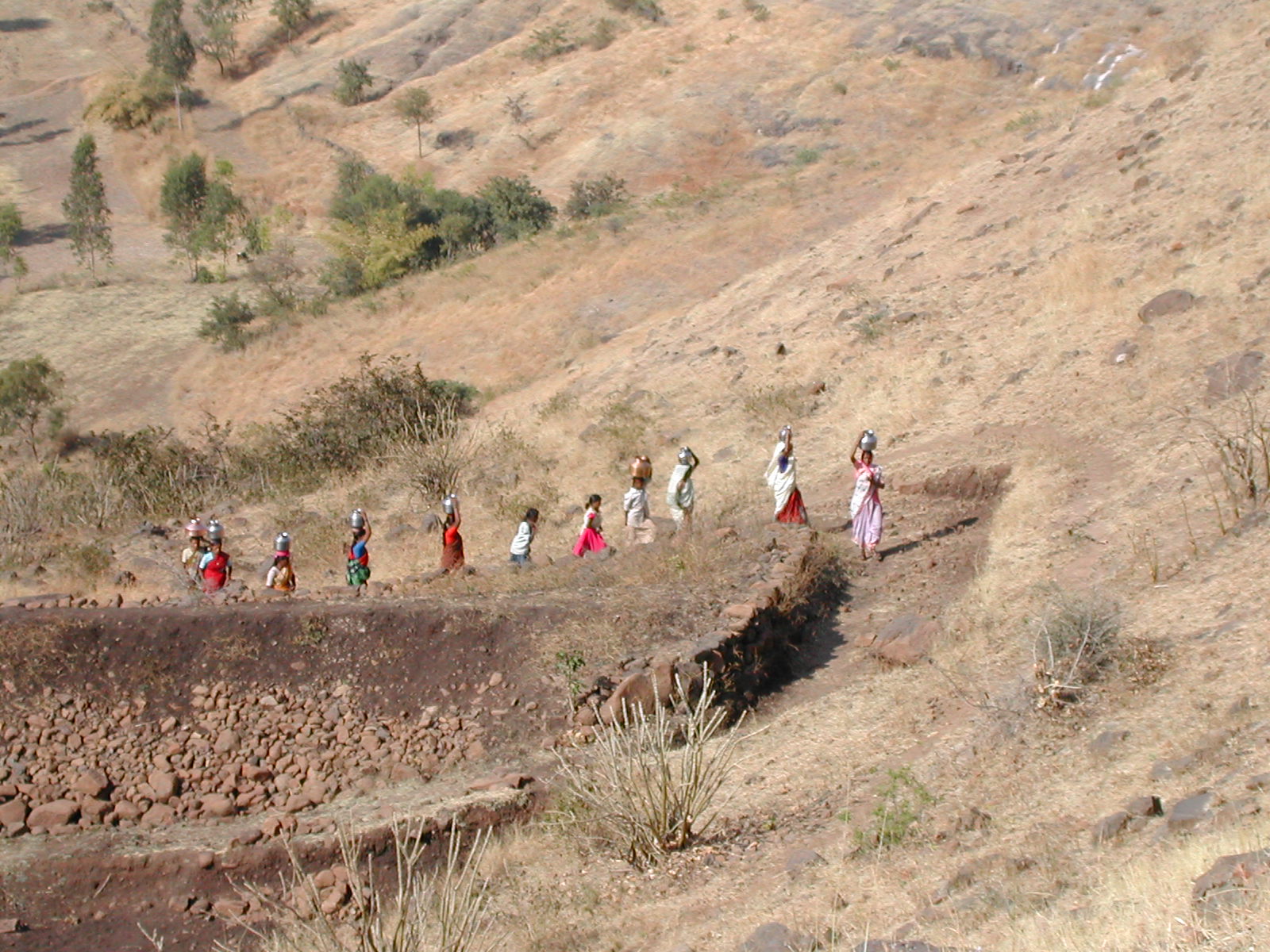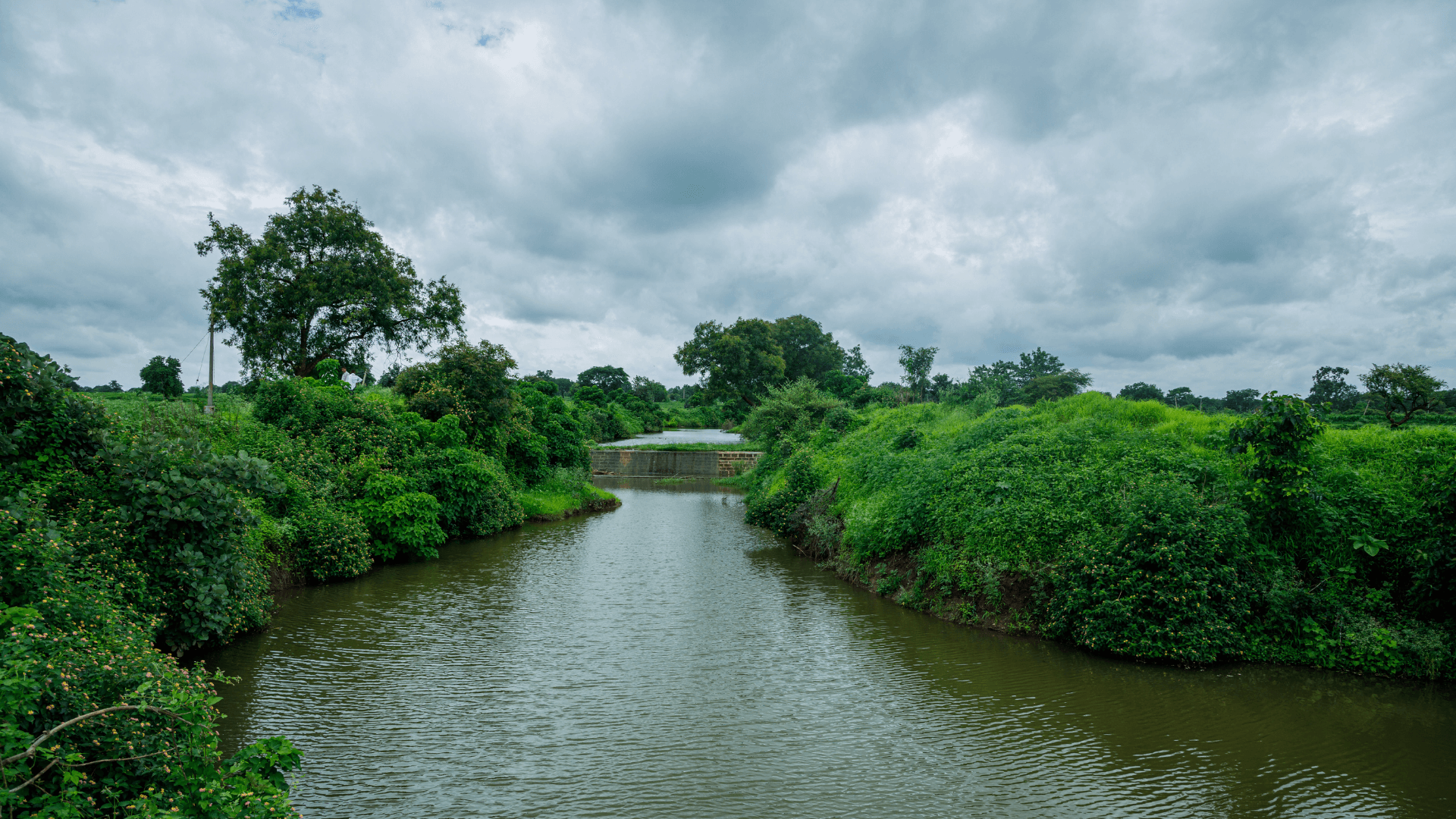When it comes to climate change, we’ve really started to feel the heat.
HN: The stakes are higher than we know, and the situation is far scarier than I think any of us anticipate.
The ten hottest years recorded on planet Earth have all been in the last decade. We are already at risk of crossing five of the world’s major tipping points. We are nearing the point of no return.
Now I’m not here to make you feel gloomy, because the truth is, we’ve got a lot to be grateful for. Ecosystems are the reason we are alive; they are full of light and life and wonder. And they are our best ally in restabilising our planet and keeping us safe. We’ve got proof.
HN: A lot of the parts of the city where lakes were restored are now much more resilient to flooding.
CB: Even when there is less rain, tankers never come to our village.
RP: So this is adaptation. This is making nature your ally.
This is our moment to start thinking differently, and it’s going to be our last chance. But the good news is that we know what we’ve got to do.
Welcome to In Our Nature, a podcast by the ECOBARI Collaborative that uncovers what we need to do to protect ecosystems so that they can protect us. I’m your host. Isha, and in this series, we explore the ways in which our lives are intimately connected with the natural world, and how restoring nature can help us adapt to climate change.
New episodes coming every month. Stay tuned!
ECOBARI is a shared initiative of nine founding partners, and is convened by the Watershed Organisation Trust or WOTR.
Speakers
In order of appearance
- Harini Nagendra, Director, Research Centre, and Lead, Centre for Climate Change and Sustainability, Azim Premji University
- Chhaya Rajaram Bodke, member of Mahila Sangathan, Mhaswandi village, Ahmednagar district, Maharashtra
- Ravi Prabhu, Senior Adviser, The Center for International Forestry Research and World Agroforestry (CIFOR-ICRAF)
Sources
NOAA National Centres for Environmental Information, 2024, 2023 was the warmest year in the modern temperature record. National Oceanic and Atmospheric Administration, Washington D.C., USA.
Hoegh-Guldberg, O., D. Jacob, M. Taylor, M. Bindi, S. Brown, I. Camilloni, A. Diedhiou, R. Djalante, K.L. Ebi, F. Engelbrecht, J. Guiot, Y. Hijioka, S. Mehrotra, A. Payne, S.I. Seneviratne, A. Thomas, R. Warren, and G. Zhou, 2018: Impacts of 1.5ºC Global Warming on Natural and Human Systems. In: Global Warming of 1.5°C. An IPCC Special Report on the impacts of global warming of 1.5°C above pre-industrial levels and related global greenhouse gas emission pathways, in the context of strengthening the global response to the threat of climate change, sustainable development, and efforts to eradicate poverty [Masson-Delmotte, V., P. Zhai, H.-O. Pörtner, D. Roberts, J. Skea, P.R. Shukla, A. Pirani, W. Moufouma-Okia, C. Péan, R. Pidcock, S. Connors, J.B.R. Matthews, Y. Chen, X. Zhou, M.I. Gomis, E. Lonnoy, T. Maycock, M. Tignor, and T. Waterfield (eds.)]. Cambridge University Press, Cambridge, UK and New York, NY, USA, pp. 175-312, doi:10.1017/9781009157940.005.
Lindsey, Rebecca, and Dahman, Luann, 2023, Climate Change: Ocean Heat Content. NOAA, Washington D.C, USA.
- M. Lenton, D.I. Armstrong McKay, S. Loriani, J.F. Abrams, S.J. Lade, J.F. Donges, M. Milkoreit, T. Powell, S.R. Smith, C. Zimm, J.E. Buxton, E. Bailey, L. Laybourn, A. Ghadiali, J.G. Dyke (eds), 2023, The Global Tipping Points Report 2023. University of Exeter, Exeter, UK.
Credits
Produced by Isha Chawla
Original score by Anurag Baruah
Listen to the series here




